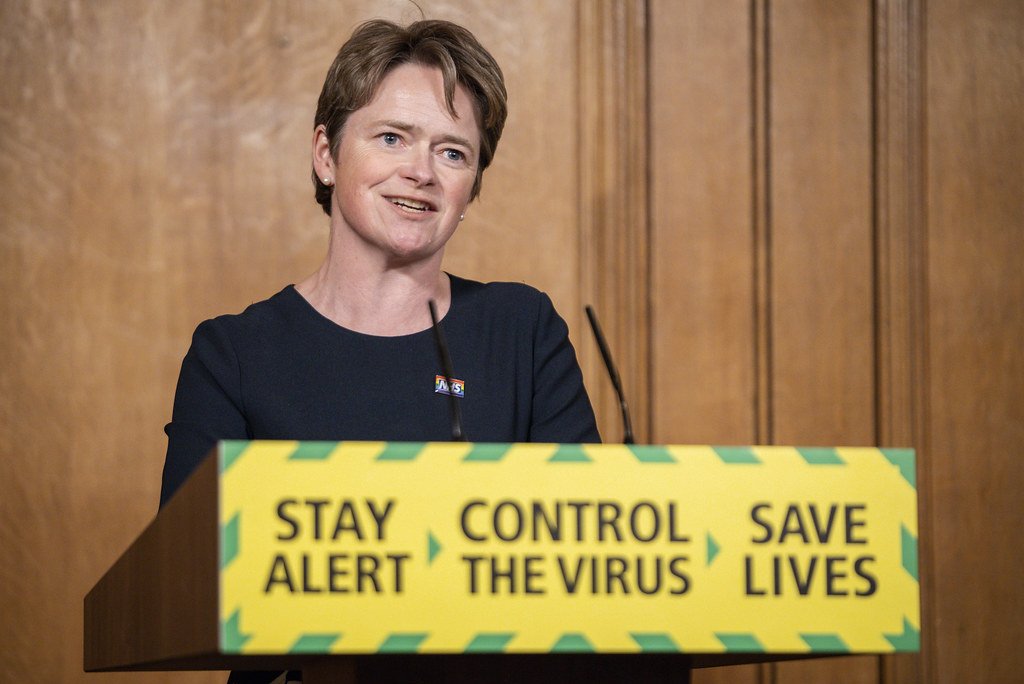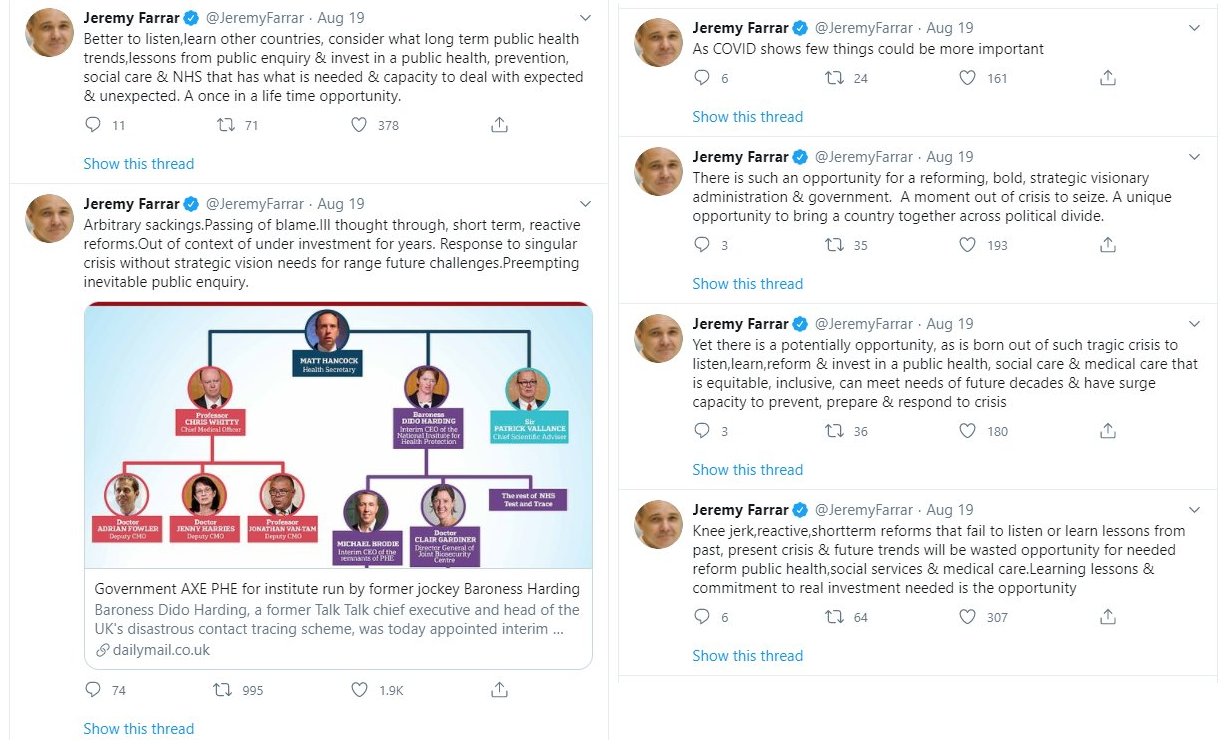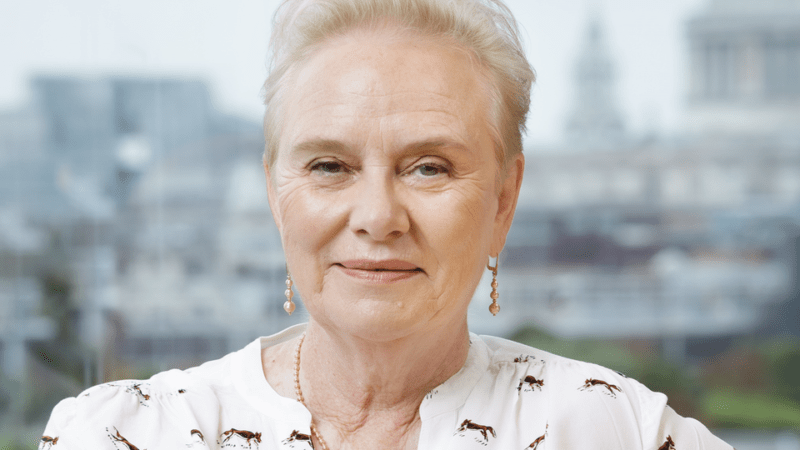Government creates new National Institute for Health Protection

The government has scrapped Public Health England (PHE) and created a brand new organisation whose primary focus is public health protection and infectious disease. Led by Baroness Dido Harding, Interim Executive Chair, The National Institute for Health Protection (NIHP) will start work immediately, with a single command structure to advance the country’s response to the COVID-19 pandemic.
The government said that the new organisation will focus on rigorous science-led approach to public health protection. However, the move has attracted criticism from scientists including Jeremy Farrar, Director of the Wellcome Trust, who tweeted on August 18th 2020 "Arbitrary sackings.Passing of blame.Ill thought through, short term, reactive reforms. Out of context of under investment for years. Response to singular crisis without strategic vision needs for range future challenges.Preempting inevitable public enquiry."
About the NIHP
From today (18th August 2020) the NIHP will bring together Public Health England (PHE) and NHS Test and Trace, as well as the analytical capability of the Joint Biosecurity Centre (JBC) under a single leadership team. This is the first step towards becoming a single organisation, focused on tackling COVID-19 and protecting the nation’s health.
The responsibilities of the NIHP will include:
- NIHP local health protection teams to deal with infections and other threats
- support and resources for local authorities to manage local outbreaks
- the COVID-19 testing programme
- contact tracing
- the Joint Biosecurity Centre
- emergency response and preparedness to deal with the most severe incidents at national and local level
- research and reference laboratories and associated services
- specialist epidemiology and surveillance of all infectious diseases
- the Centre for Radiation, Chemical and Environmental Hazards
- global health security
- providing specialist scientific advice on immunisation and countermeasures
Health Secretary Matt Hancock said:
"To give ourselves the best chance of beating this virus once and for all – and of spotting and being ready to respond to other health threats, now and in the future – we are creating a brand new organisation to provide a new approach to public health protection and resilience.
The National Institute for Health Protection will bring together the expertise of PHE with the enormous response capabilities of NHS Test and Trace and the Joint Biosecurity Centre to put us in the best possible position for the next stage of the fight against COVID-19 and for the long term.
I want to thank all my brilliant colleagues at Public Health England, the NHS, the Joint Biosecurity Centre, local directors of public health and their teams, contact tracers, diagnostics experts, epidemiologists, infection control teams, and every single person who has contributed to the national effort to get this deadly pandemic under control over the last 8 months.
I would like to personally thank Duncan Selbie for his leadership of PHE bringing together 70 different agencies, pursuing ground-breaking work on tackling obesity, promoting health improvement and leading PHE, in what has been an exceptionally challenging time. I am looking forward to continuing working with him as a leading figure in the global, public health agenda.
The NIHP will be a new organisation whose primary focus is to ensure we have the best capability to control infectious disease and deal with pandemics or health protection crises. It will take on existing UK-wide responsibilities and it will work with local government, the NHS and the devolved administrations to ensure we have the strongest possible health protection system for the whole of the UK. It will build on the existing strong working relationships between the 4 nations of the UK, including on data-sharing, alert levels and border issues."
It will report directly to the Health and Care Secretary and support the clinical leadership of the 4 UK chief medical officers.
The government is immediately bringing together PHE, NHS Test and Trace and the Joint Biosecurity Centre under the interim leadership of Baroness Dido Harding, with a single command structure and operating model to tackle the COVID-19 pandemic.
Baroness Dido Harding, Interim Executive Chair of the National Institute for Health Protection, said:
"Combining the UK’s world-class public health talent and infrastructure with the new at-scale response capability of NHS Test and Trace into a single organisation puts us in the strongest position to stop the spread of the virus.
The fantastic teams in PHE, NHS Test and Trace and in local authorities have done so much over the past 8 months, and I thank them all for their service now and in the future.
PHE has worked incredibly well with NHS Test and Trace, and with winter ahead, the life-saving work we are doing is more important than ever.
The changes announced today are designed to strengthen our response, and to radically ramp up our fight against this disease, whilst also protecting PHE’s essential work beyond COVID that is so important for the nation’s health."
Supporting Baroness Harding in her role will be Michael Brodie, who has been appointed Interim Chief Executive Officer of PHE. Michael is currently CEO of the NHS Business Services Authority.
Duncan Selbie, the outgoing PHE Chief Executive, will be taking on a role as a senior advisor to the Department of Health and Social Care (DHSC) on global and public health. The DHSC will establish a new Stakeholder Advisory Group to provide expert advice from leading thinkers in public health, health care and local government.





